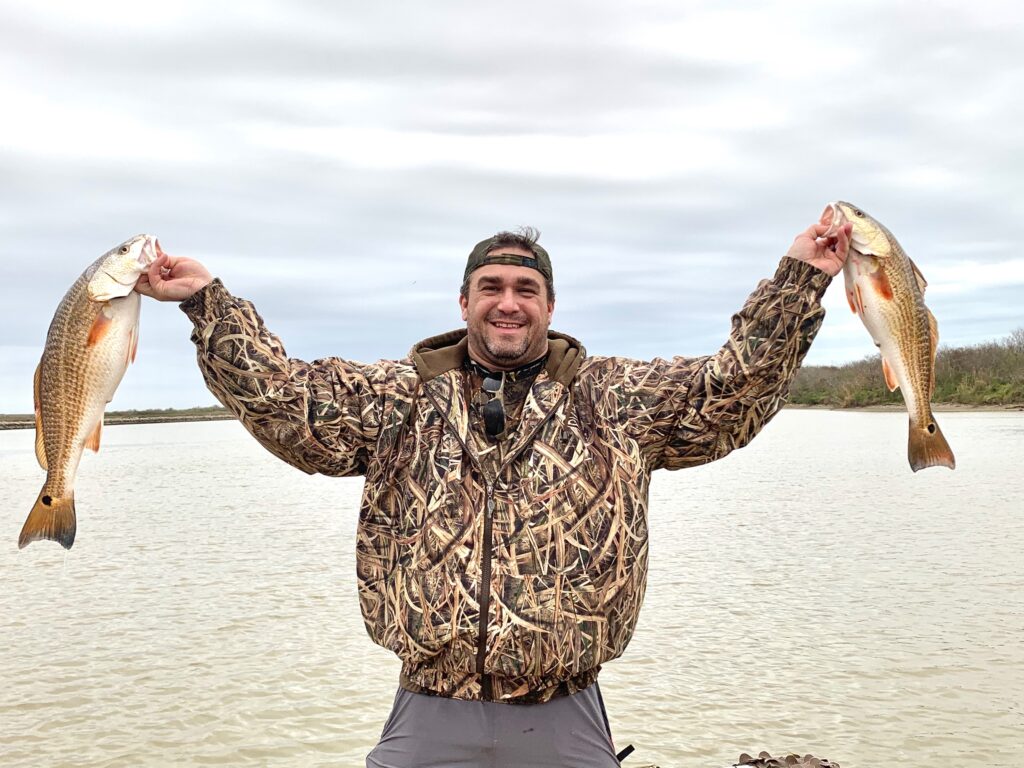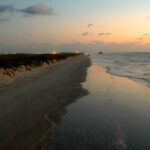Order by 3 PM CT for Same-Day Free Shipping (Lower 48 | Mon-Fri)
Don’t put those boats away yet!
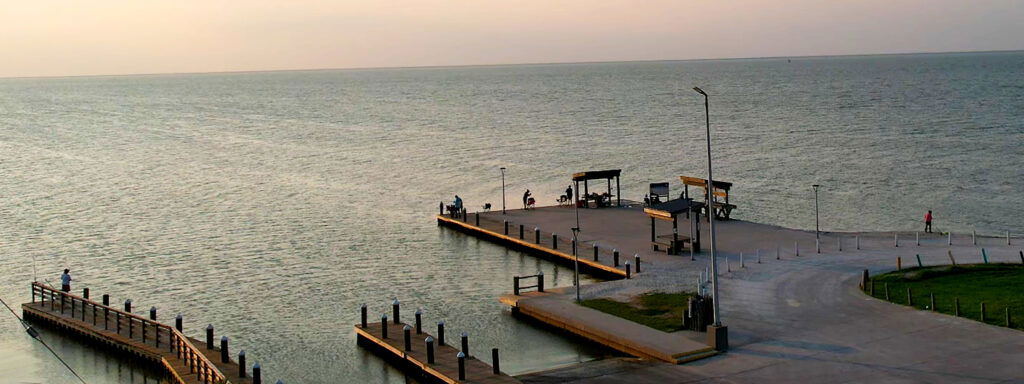
Growing up along the Texas coast, September through November has ALWAYS been a favorite! Not only is the weather getting nicer and you’ve made it through another brutal summer, but the big fun fish start to hammer anything in the water. I’m talking about the “Redfish Run”! Whether you’re using a shrimp under a popping cork, artificials or, and don’t laugh too hard, but a spoon, my personal “go too”. If you’re lines in the water, and they’re around, you’re going to have fun! The best part is, you can be in the back lakes, bay, surf, jetties, pretty much anywhere there’s salt water…or even brackish water, and you can run into some good fish! …and they are always fun!
We always would jetty, wade or public dock fish. My father’s favorites included, Sea Wolfe Park on Galveston, under the Kemah bridge or wading somewhere on the island. Saltwater fishing was our first introduction to the sport, its always been my dad’s favorite. I still remember when he brought home brand-new rod and reels for his boys, they were red, I have no idea what brand they were, only that 3 of them were bait casters and one was a spinning reel. This of course would come back to haunt my father….his kids were heathens and backlash fanatics. None the less, we were out there as much as we could be. The redfish run was always something we looked forward to each year! Later in life my dad would buy 2 kayaks and introduce me to the wonders of the back lakes and getting where others couldn’t. That’s where I was able to really foster my love for these fish.
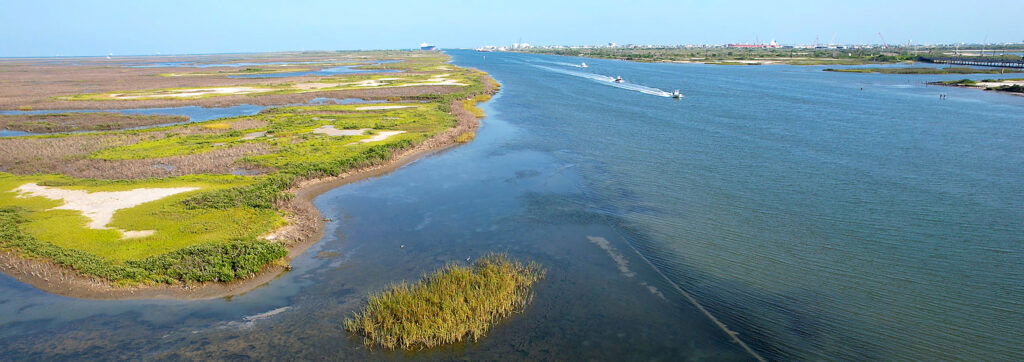
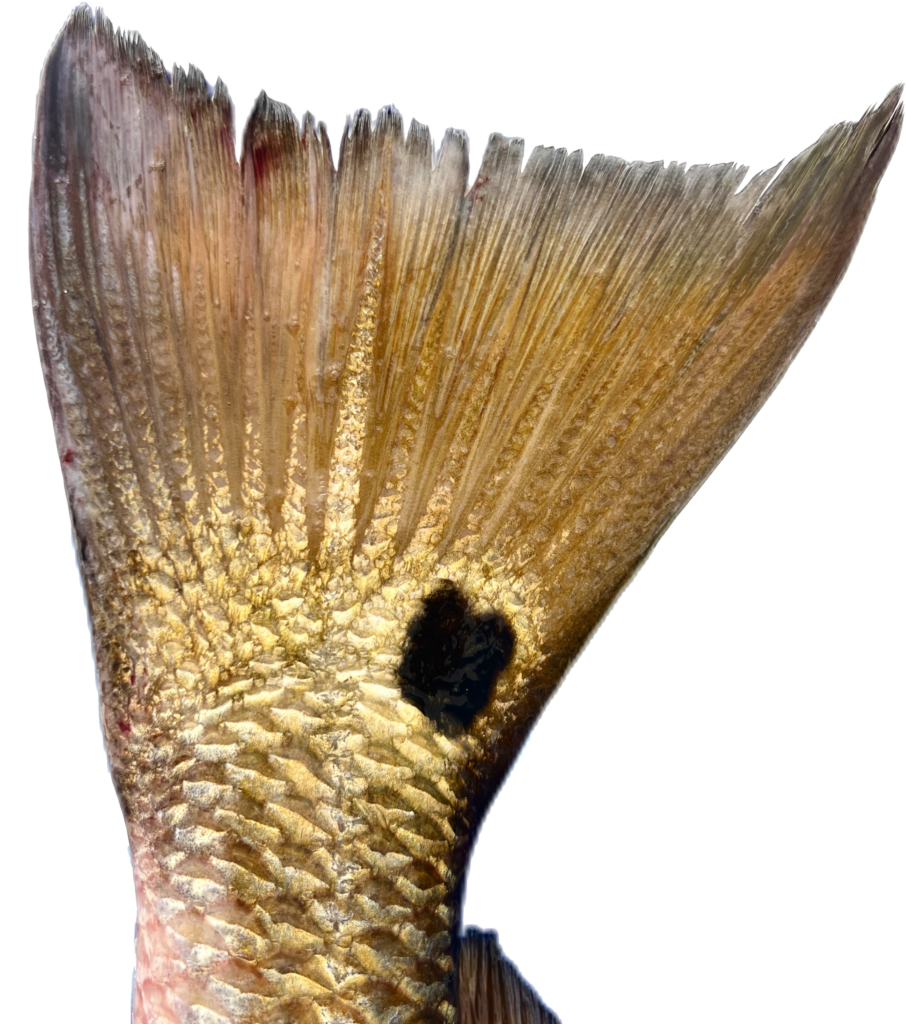
Redfish Spawning
According to the professionals with Texas Parks and Wildlife, in Texas, red drum reach sexual maturity between 3 and 4 years of age and about 30 inches in length. Spawning occurs in the nearshore waters of the Gulf of Mexico from August through November, with one fish spawning 200,000 to 2 million eggs per spawn every two to four days. This equates to 20 – 40 million eggs per fish, per year. The eggs hatch within 24 hours and are passively transported into the bays by the wind and tidal currents. There they will stay until they reach maturity and once again head offshore to repeat the reproductive cycle. I should note, that in Texas, minimum length for a “take home” Redfish or Red Drum is 20 inches, with a max at 28 inches. Anything bigger is classified as a BULL RED, and those are a lot of fun to reel in! (be sure to consult local wildlife law enforcement on size limits and bag limits.) The Redfish Run happens all along the Gulf Coast, from Texas to Floridia!
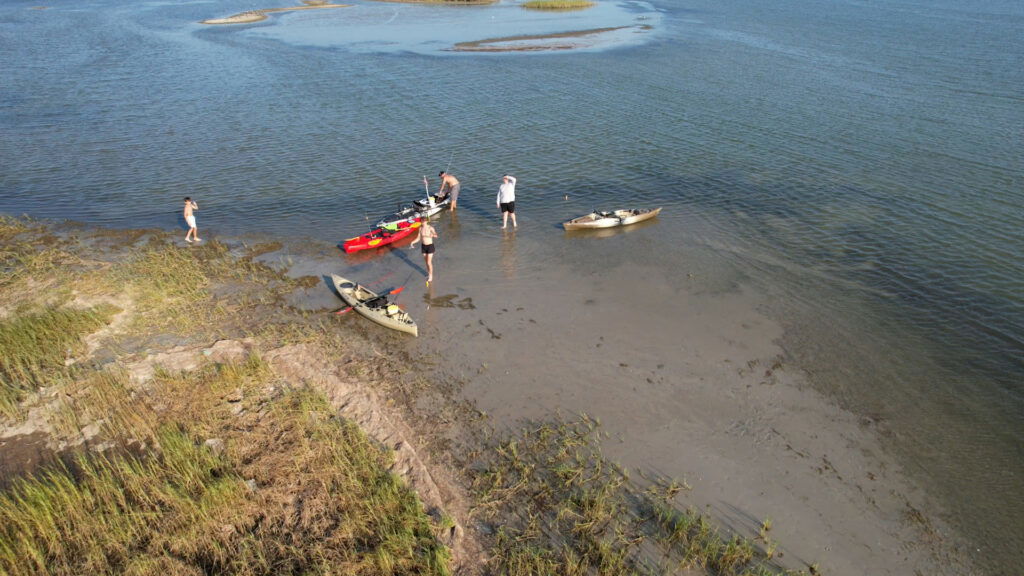
Keep an Eye on…
Any good angler knows about the “Pre-Front” fishing! This plays a huge role in success during the “Redfish Run”. But do you know why???
Barometric pressure has a notable influence on redfish behavior along the coast. When pressure drops, such as before a storm, redfish tend to become more active and feed aggressively, sensing the change in conditions. This increased feeding is often tied to their instinct to eat before a potential weather shift stirs up the water, affecting their access to food. On the flip side, a sudden rise in barometric pressure can make redfish more sluggish, often retreating to deeper waters or becoming less interested in feeding. Anglers who watch the pressure trends can use this to their advantage, targeting redfish during these low-pressure windows for better chances at landing a catch.
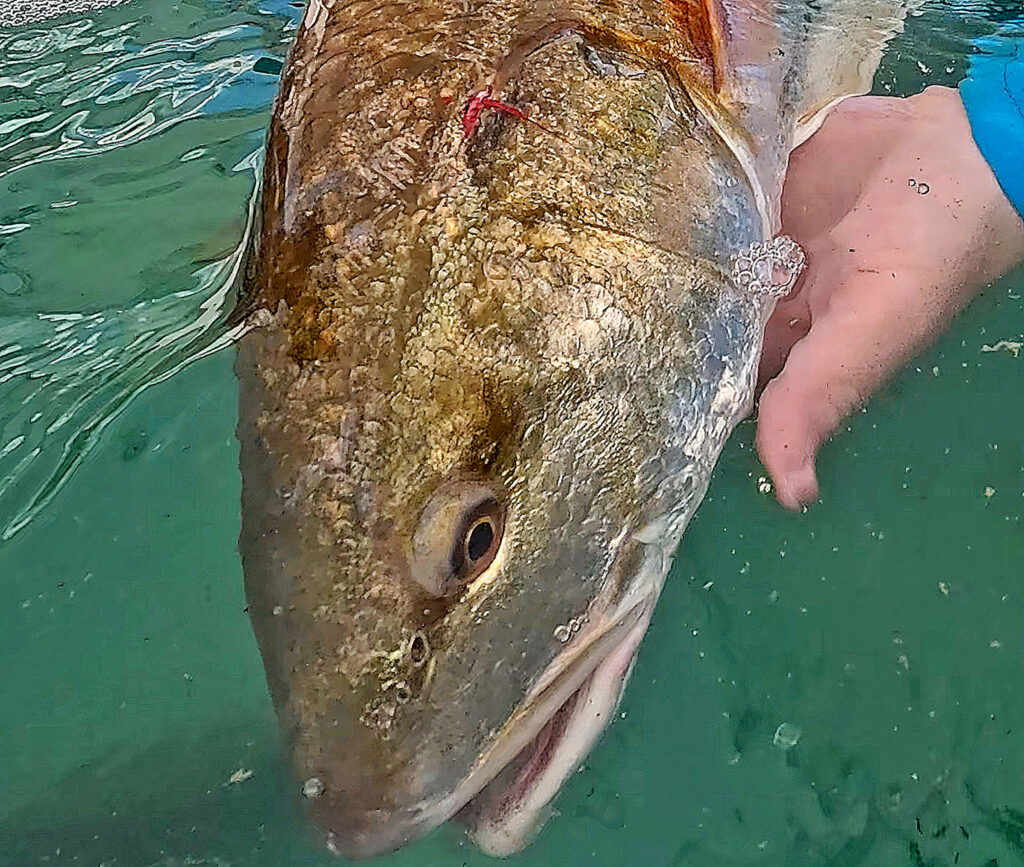
But there are times, where there is no front much like a lot of this season (2024). It’s often because a pressure system sitting over the region.
Of course, the wind is ALWAYS in the conversation. It can affect water clarity, tides, waves and if they are too high, just flat out ruin a trip. And that clarity is what I want to take a moment and talk about. Wind plays a significant role in water clarity along the Gulf of Mexico’s coastlines. When strong winds blow, they stir up the shallow coastal waters, causing sand, silt, and organic material to become suspended, which reduces water clarity. This turbidity can vary depending on the wind’s direction and intensity, with onshore winds typically resulting in murkier waters as they push waves and stirred sediment toward the shore. Conversely, calm days or offshore breezes can allow the particles to settle, leading to clearer water conditions. For anglers, understanding these shifts is key, as clearer water often improves visibility and increases chances of spotting fish near the surface.
But what about…
I learned years ago from a friend and professional guide at Totally Texas Outdoors that water temperatures are also a huge part of the equation. As water temperatures drop in the fall, redfish become more active and predictable along coastal waters. Cooler temperatures signal redfish to feed more aggressively in preparation for the leaner winter months. They’ll often move into shallower waters where the sun warms the flats, seeking out baitfish and crustaceans that congregate in these areas. This seasonal shift can create prime conditions for anglers, as redfish gather in schools and are more likely to bite. Understanding the patterns of these temperature changes can help anglers time their trips, as redfish are typically more active and accessible in these ideal fall conditions. The best water temperatures for redfish fishing typically range between 65°F and 75°F. In this range, redfish are most active, feeding aggressively as they prepare for cooler conditions. Temperatures below 65°F can slow their metabolism, making them less likely to chase bait, while temperatures above 80°F may push them into deeper, cooler waters. During the fall, as water temperatures gradually drop into this ideal range, redfish are more likely to school up in shallow areas, offering great opportunities for anglers to catch them in predictable spots close to shore.
Something else I learned from Capt. Dwayne Green, with Totally Texas Outdoors, was to incorporate smell into my fishing. I had always taken into account “matching the hatch” as well as sound, but never smell…I found with the right choice it can make a world of difference. In the fall, redfish respond well to natural, oily scents that mimic their preferred prey, as they’re bulking up for the winter. Scents like shrimp, crab, and mullet are particularly effective because they align with what redfish actively hunt during this time. Anglers often use scented soft plastics or apply attractant gels and sprays directly to their lures. Garlic-based scents can also be a good addition, as they tend to stand out in murky water and can trigger curiosity strikes. Back lake and bay fishing can be tricky, and by adding scent, you can increase the likelihood of a good fish in the box…or maybe even a Bull Red!
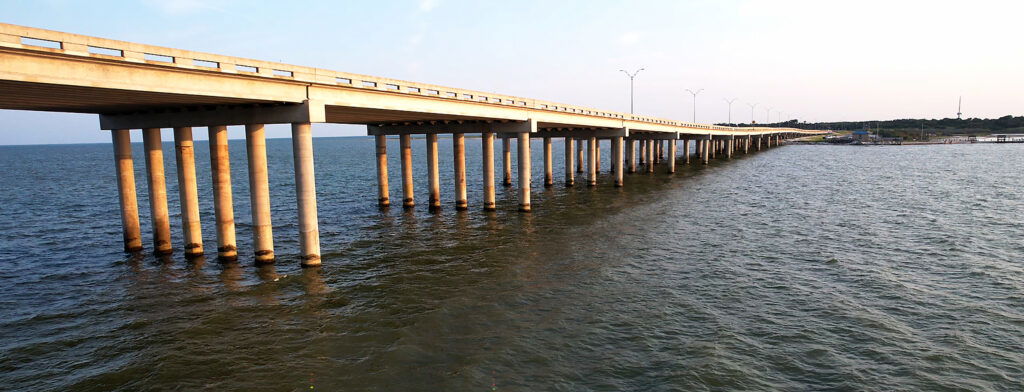
Wrapping this up.
Just because the summer is over, doesn’t mean the fishing has to stop. The Gulf of Mexico offers anglers premiere world class fishing year-round! And now that we are working our way out of hurricane season for the Atlantic, the winds and sea will be a little bit more favorable for your next adventure.
